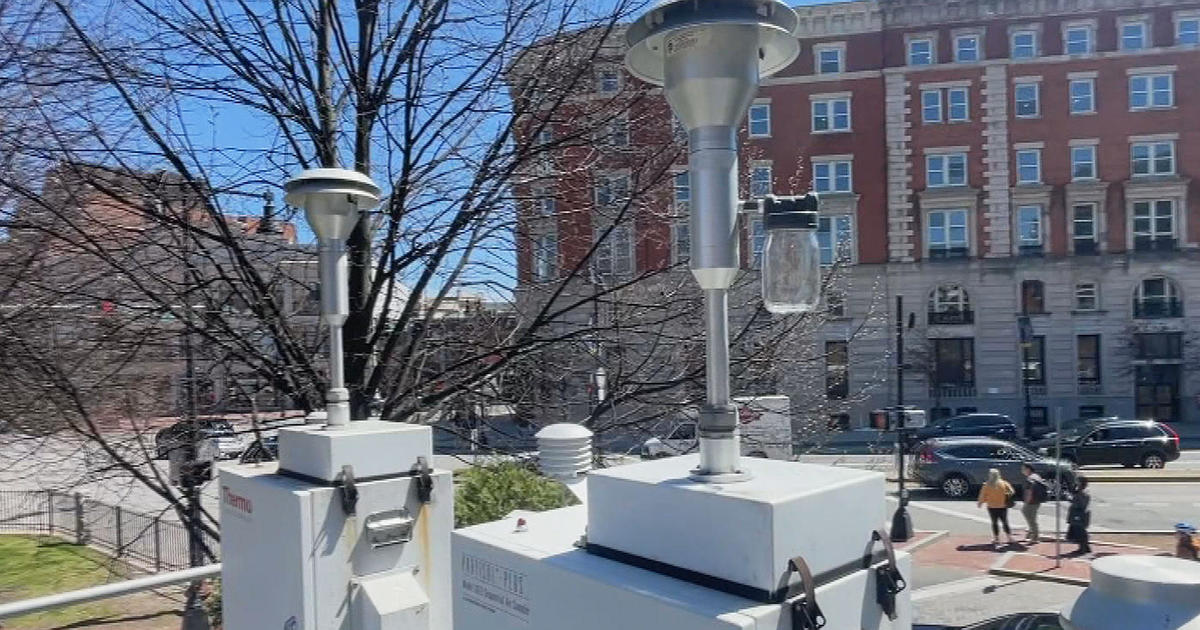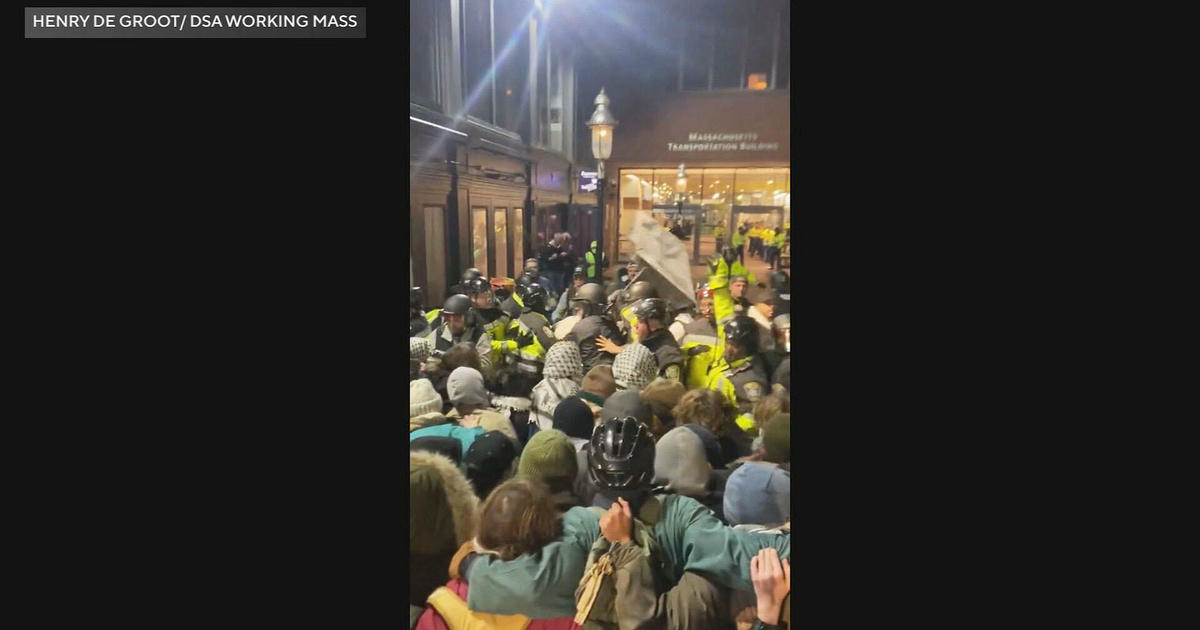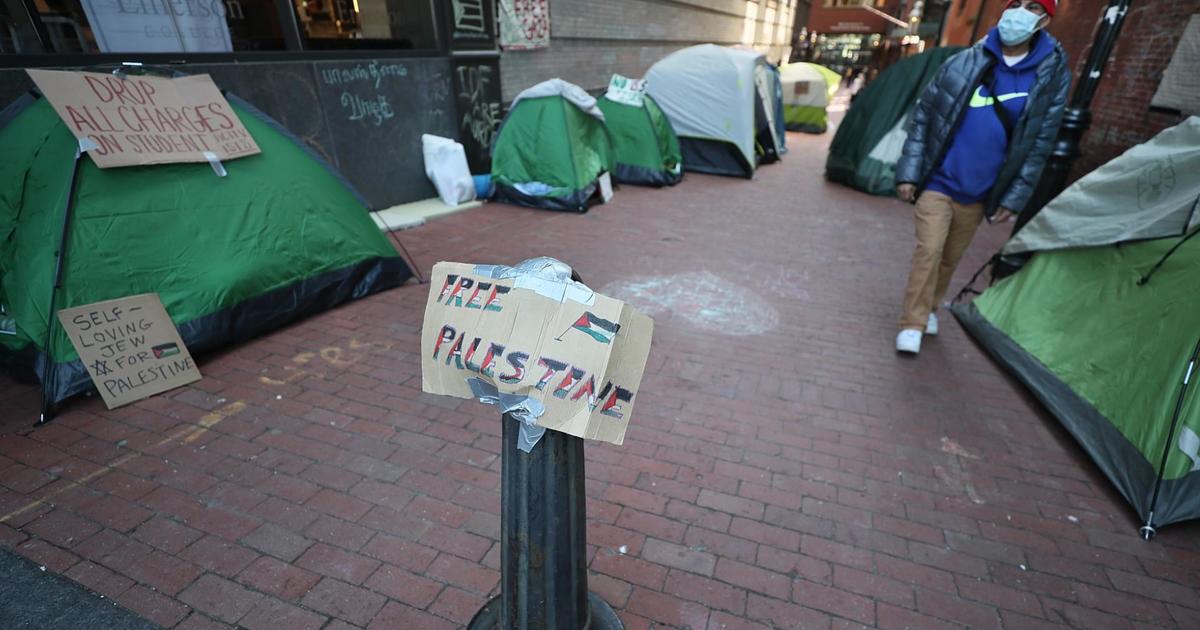Are Minority-Owned Boston Businesses Getting Their Share Of COVID Relief Money?
This investigation was produced in partnership with Boston University's Justice Media Computational Journalism co-lab, a collaboration between BU Spark!, an incubator and experiential learning lab for computer science and engineering projects, and the College of Communication.
BOSTON (B.U./CBS) - The U.S. Small Business Administration is unable to track the race and gender of borrowers who received pandemic relief money from its Paycheck Protection Program last spring — making it nearly impossible to determine how much of the cash went to minority-owned businesses in Boston.
More than 90% of the 2,000-some borrowers in the city did not disclose their race or gender on the application's optional demographic questions. Of those who did, about 84% self-identified as white and nearly 87% as male.
Elizabeth Moisuk, spokesperson for the SBA's New England Regional Office, wrote in an email that the SBA cannot require applicants to reveal demographic information because it could be "used in a discriminatory manner."
"This is why it is difficult to see a complete picture of the full reach of SBA's programs," she wrote.
But CBS Boston compared the payroll relief data to the City of Boston's registry of certified minority-owned businesses, as well as its list of self-identified Black- and Brown-owned businesses, and found only 24 from these lists received PPP money — out of about 2,000 total borrowers. To be sure, not all minority-owned businesses are included in these registries because businesses identify themselves on a voluntary basis.
These findings come after a study by the National Community Reinvestment Coalition showed Black female and Hispanic male testers, who posed as applicants in the Los Angeles region, received less information about PPP loan products than white, male testers. Banks gave Black applicants different "levels of encouragement" and information to apply for loans, according to the study.
Boston Beauty Bar, a Black-owned salon in Downtown Boston, applied for a PPP loan and was unsuccessful. Owner Nykia Gurley said the process was a "disaster," and that the SBA did not give her an explanation as to why it denied her application. The salon shut its doors for three months after the pandemic hit.
"I feel disappointed, and I feel discouraged. I feel overlooked," Gurley said. "I would hope that they would see the little people, too. We matter, too."
In February, about seven months after reopening, Gurley said she was still trying to recover from the debt she accumulated during her shutdown in the spring.
Gurley said she has used up her cash reserves and probably couldn't survive another lockdown. A forgivable loan of anywhere between $20,000 to $30,000 would have helped make it possible for her to continue paying the bills, she said.
The application experience felt overwhelming, she said. Aside from the volume of information she was required to report, she said she found it difficult to access help from banks as the corporate world went remote.
"I'm not even sure if I properly filled it out," she said. "Maybe that's why they denied me. I don't know."
In interviews, experts said the country's track record of racism has pushed minorities to distrust government institutions, and marginalized groups may have felt uncomfortable providing information which has historically induced implicit bias.
Experts said more outreach to disadvantaged communities and better access to technology could have improved many local business owners' chances of securing a PPP loan.
Gordon Goodwin, director of the Government Alliance on Race and Equity, said minority business owners may have felt hesitant to answer demographic questions because of concerns that the information could be used against them in the application process.
"If you are a person of color, you might be thinking, perhaps it's good to be anonymous," Goodwin said. "Because we know that implicit bias in a loan process can be triggered by zip code, can be triggered by knowing somebody's race."
The PPP, a federal emergency relief program created under the CARES Act, provided more than $1 billion in potentially forgivable funds to Boston-based businesses and nonprofits to help them retain employees and meet other eligible costs during the COVID-19 pandemic.
The loans were given out on a first-come, first-serve basis, leaving under-resourced businesses at a disadvantage because it was harder for them to submit applications quickly and secure funding. In Boston, the average loan amount for the first round, which ran from April to August, was about $680,000.
Big businesses received most of the money, the data show. Borrowers who got $150,000 or less qualify for potential loan forgiveness, and only five out of 2,000-some borrowers in Boston were eligible. According to the data, about 11% of recipients were nonprofits.
An unequal playing field
Experts and borrowers said the application process was confusing, which discouraged small businesses from applying. And many of these would-be borrowers, according to Goodwin, were likely minorities.
Minority business owners are more likely to operate sole proprietorships, Goodwin said, which makes them the only person on their payroll. Many of these owners were confused about whether or not they would qualify if they employed no other staff. However, self-employed and single-employee businesses were eligible for PPP money.
That confusion dissuaded Teresa Maynard, founder of Black-owned Sweet Teez Bakery in Dorchester, from applying for the PPP. Maynard is the only employee on her payroll.
To her, the PPP application rules were "unclear" in the first place but became even more so after she attended several informational workshops about the loan.
"They were like, 'Oh, just apply.' But I'm like, based on what this says, I shouldn't apply," Maynard said. "I'm just one person. I don't have payroll. Why should I bother?"
Ultimately, sole proprietorships made up less than 1% of first-round borrowers in Boston, according to CBS Boston's analysis of the data.
Maynard said a loan as small as $25,000 would have helped Sweet Teez stay afloat after the bakery lost its full inventory, but to her, it seemed the SBA placed more emphasis on payroll costs than other indicators of financial need.
"That's a way that you weed out a bunch of people who could actually use the money — true small businesses," Maynard said. "I feel like the government didn't really care if I was still standing at the end of this. The whole thing was not set up to help small business."
Immigrant communities and people of color tend to lack access to accountants, lawyers and connections with other business owners, Goodwin said. Without help from experts to explain the application process, he said, small business owners were more likely to find themselves confounded by SBA rules surrounding PPP loan distribution.
The data shows the two companies that received the most money in Boston — Legal Sea Foods and Creative Financial Staffing — got $10 million each, the maximum allowed.
Goodwin said an established relationship with a bank that is a certified SBA lender is one of the top factors in how likely or quickly a business was to secure a loan, and historically marginalized groups are less likely to have that advantage.
Multiple business executives interviewed said they've noticed bigger companies tend to maintain better relationships with their banks — which comes in handy when banks become lenders of emergency, government-funded loans.
"Those banks are willing to bend over backwards for them because of it," Maynard said. "But little old me with my little bank account that's not bringing anything in for seven months, do they care to help me do a PPP loan? Not so much."
Accessibility and incentives
Achieving equity in loan distribution requires intentional outreach to communities with more small and minority-owned businesses, said Iván Espinoza-Madrigal, executive director of Lawyers for Civil Rights.
And for low-income business owners, he said, access to and understanding of digital platforms posed another obstacle because online portals played a large part in PPP application processes.
Jacob Robinson, executive director of West Roxbury Main Streets, said he had attempted to get PPP-related information and instructions out to as many businesses as he could. But the guidelines changed constantly, he said, which caused confusion among owners who were already "working 24/7" to keep doors open.
While single-employee borrowers questioned whether they'd qualify, he said, others weighed whether it was worth taking the PPP money as compared to laying off and furloughing staff. As the pandemic dragged on, rehiring became a point of anxiety for some employers.
"They felt like as soon as that money runs out, that very next day, they're going to have to let their staff go again," Robinson said.
Goodwin, of the Government Alliance on Race and Equity, said possible solutions to the lack of equity tracking include asking demographic questions after a borrower has already received their loan, or asking multiple times throughout the course of the application process.
Government agencies could also outsource demographic information collection to an independent organization with a history of promoting the public interest, he said, such as the American Civil Liberties Union.
"Armed with ... a deep suspicion of structures and systems that have often not worked out for us because there was explicit racialized practices that were taking place," Goodwin said, "it does not surprise me that more people do not offer that information in a forthcoming way."
Mahmoud Khalil contributed to the reporting of this story.



